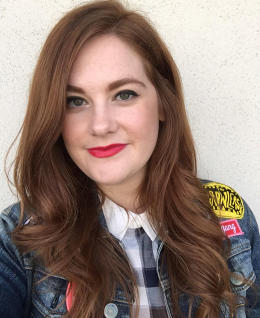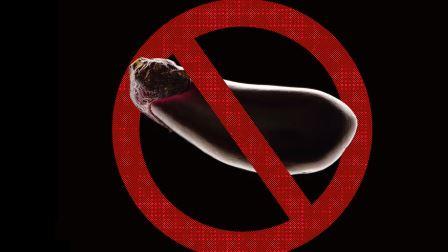This Woman Wants Facebook To Ban Unsolicited Dick Pics
For Alexandra Tweten, unsolicited dick pics just seem to be a part of modern life. As a single woman in Los Angeles and an active online dater, she has seen more than her share of photos of men’s genitalia—but never because she asked for them.
She’s far from alone. After talking with friends and other women online, Tweten realized that this obscene ritual is surprisingly common. And it’s not just limited to dating apps: A shocking number of surprise phalluses find their way into women’s inboxes on Facebook. And they’re really, really tired of it.
“We shouldn’t have to deal with this,” Tweten says. “It’s fucked up.”
So Today, Tweten is launching a Change.org petition calling on Facebook to more explicitly ban the act of sending unsolicited sexual imagery. This behavior, she says, is analogous to a man flashing his genitals to a woman on the street. But although laws forbid such conduct in public, there are few protections against it online. This is true in just about any digital space, but the campaign is initially focusing its critique on Facebook as the world’s largest social network. In the future, Tweten plans to apply pressure to other online communities and, eventually, hopes to see a legislative solution to the problem.

“I have personally been a recipient of unsolicited dick pics on Facebook, and it made me feel both degraded and fearful for my personal safety,” Tweten explains. “One man has made several different Facebook accounts to send me pictures of his penis. I block him, but he makes another.”
Although Facebook has rules in its community guidelines barring people from posting nudity and sexual images publicly, those rules don’t directly address images that are sent privately. Under the guidelines’ section on bullying and harassment, Facebook does forbid “repeatedly targeting other people with unwanted friend requests or messages,” and while it’s fair to interpret “unwanted messages” to include lewd photos, Tweten says this clause isn’t specific enough. And even if it were, the word “repeatedly” would seem to permit the first dick pic, but forbid subsequent images. At no point in Facebook’s guidelines is privately sent, unwanted sexual imagery defined as a form of harassment. This is the sort of language—along with the appropriate penalties—that Tweten would like to see added to Facebook’s rules of conduct.
Facebook’s guidelines—which vow to “remove photographs of people displaying genitals”—presumably apply to its Messenger app, but it’s not clear if Facebook actively polices private messages or deals with obscene, private imagery as it’s reported. We reached out to Facebook for clarity and will update this story with any new details.
Tweten learned about the true breadth of the dick pic epidemic after she started Bye Felipe, an Instagram account dedicated to using screenshots to publicly shame men who harass women—be it via text or with images—in dating apps, social networks, and any other online spaces. After Bye Felipe was covered in The Atlantic in 2014, its popularity exploded, and it now has 418,000 followers. The flood of submissions that Tweten has received has only further illustrated just how nasty some men can get when shrouded in even partial anonymity online—and just how many of them think sending graphic, sexual images to people out of the blue is a perfectly acceptable way for a person to behave.
“Women are getting together in these online spaces and saying, ‘This fucked-up thing happened to me,’” Tweten says. “All of these other women are saying, “Yeah, that’s happened to me too!” I’ve gotten so many thank you messages from people saying, ‘I thought I was the only person who got crazy messages like this.’”
One of the women who contacted Tweten—and ultimately helped organize this petition—is Whitney Bell. The Los Angeles-based artist and curator has seen so many lewd photos from Internet dudes that she decided to curate an art show in April entitled, “I Didn’t Ask For This: A Lifetime of Dick Pics.” The gallery’s walls were adorned, as you might guess, with dozens of photos whose originators likely never expected them to be framed and displayed in an art show.
Bell’s art show, like Tweten’s Instagram account (and others like it) and this new petition all have the same goal: To shine a light on just how routinely unwanted lewd photos are being fired across the Internet, almost always by men, and rarely with any consequence. Chalk it up to another strange byproduct of our hyperconnected times: The ubiquity of Internet-connected cameras, location-powered dating apps, and instantaneous communication have evidently arrived more quickly than our social norms have been able to adapt, at least for some people. Laws and guidelines may well catch up in due time, but for now, women like Tweten, Bell, and many, many others are hoping to jumpstart the process of injecting more accountability and decency into our digital lives.
“If someone flashed you on the subway, you wouldn’t just take it, would you?” says Bell. “Don’t get me wrong: I love men. And I love a good dick. I just don’t love harassment.”
See where Facebook began—and how the site got to where it is today:
Fast Company , Read Full Story
(38)


